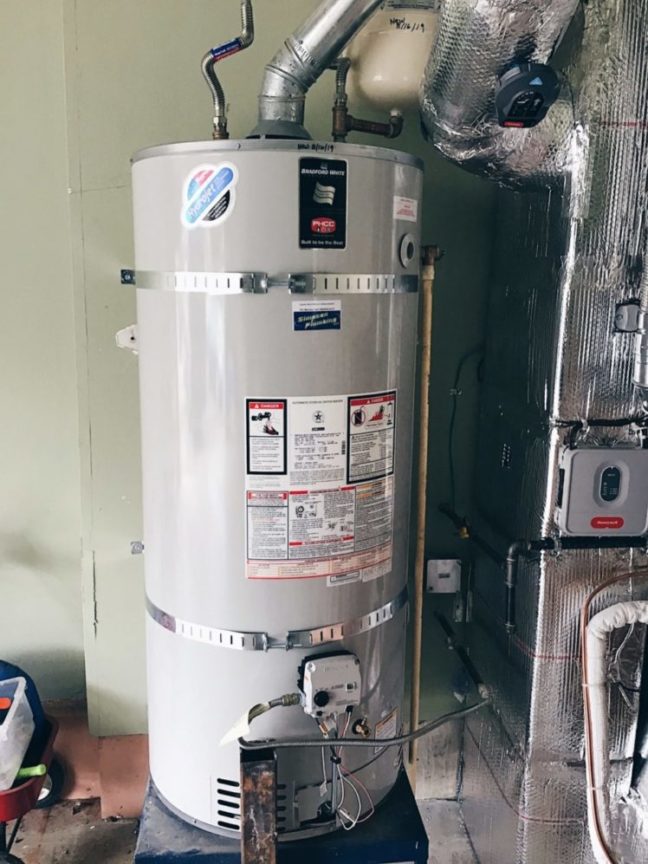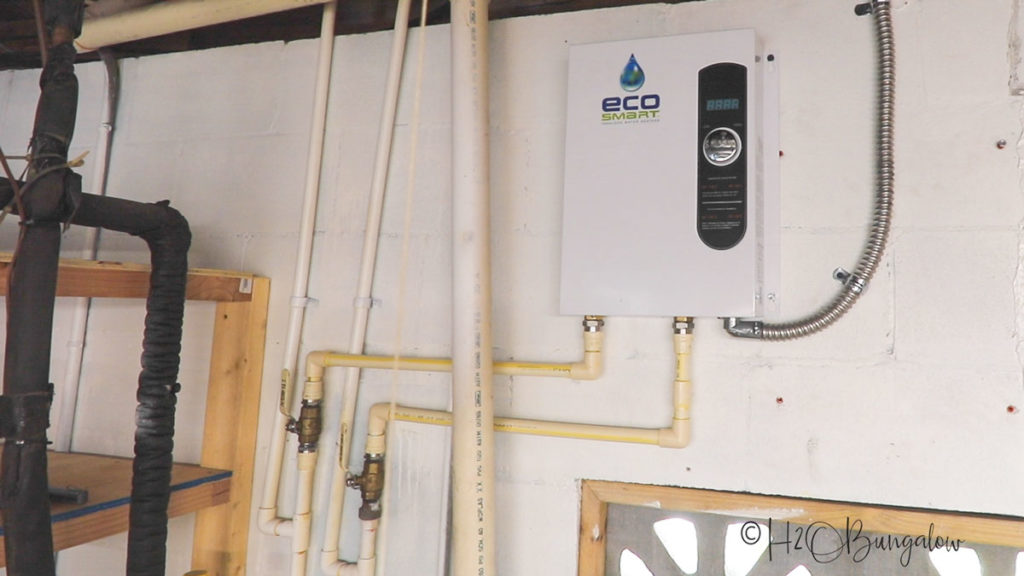Affordable water heater installation services in Yorba Linda for all homes
Affordable water heater installation services in Yorba Linda for all homes
Blog Article
How to Select the Right Hot Water Heater Installation for Your Home
Choosing the appropriate water heater installment for your home needs a thorough understanding of numerous elements, including your home's certain hot water needs and the types of heaters available. Additionally, factors to consider around power efficiency and setup expenses play an important duty in the decision-making process.

Evaluate Your Warm Water Requirements
Analyzing your warm water needs is essential for choosing an appropriate hot water heater that efficiently satisfies your family needs. To start, consider the number of occupants in your house and their day-to-day routines, as these variables substantially affect warm water consumption. For instance, larger homes normally call for better warm water capacity for tasks such as showers, laundry, and dishwashing.
Recognize when your household calls for the most hot water at the same time. Furthermore, take into consideration the specific home appliances and fixtures that eat warm water, consisting of washing taps, machines, and dish washers.
It is also necessary to account for any future modifications in your household, such as extra member of the family or changes in lifestyle that may boost warm water need. Examine the energy effectiveness of potential water heating unit options, as this can considerably affect lasting operating costs. By extensively evaluating these aspects, you can make an informed choice that aligns with your warm water demands and promotes reliable energy use in your home.
Discover Different Hot Water Heater Kind
When checking out different water heating system kinds, it's important to understand the numerous options available and their one-of-a-kind functions. The most common kinds consist of storage tank water heaters, tankless water heaters, heat pump water heating units, and solar water heating units.
Tank water heating units are traditional systems that keep a particular quantity of warm water, making them suitable for households with consistent demand. They can run out of warm water during peak use.
Tankless hot water heater, on the other hand, heat water as needed, offering an endless supply. They are suitable for smaller spaces and can be extra energy-efficient, yet might need a greater in advance financial investment.
Heatpump water heaters make use of power to move warm from the air or ground, making them effective alternatives in moderate environments. They can be much more complex to install and may need added room.
Lastly, solar water heaters harness sunlight to heat water, using an environmentally friendly alternative. They call for a considerable initial investment and are reliant on bright conditions but can drastically lower energy expenses in time.
Each type has distinct benefits and factors to consider, making it important to examine which ideal fits your home's requirements and choices.
Consider Energy Efficiency Scores
Recognizing the various kinds of water heating units naturally leads to the factor to consider of their energy performance rankings. Energy effectiveness is a vital consider picking a water heater, as it directly affects your utility costs and the ecological footprint of your home. Hot water heater are usually ranked making use of the Energy Aspect (EF) or the more recent Uniform Energy Variable (UEF) metrics, which quantify their performance by determining the power taken in versus the hot water produced.

It is additionally important to examine the Power Star certification, which represents that a water heater satisfies strict efficiency criteria. Selecting a water heating system with a high power effectiveness score can not just reduce your energy expenses yet additionally boost the overall convenience of your home, making it a crucial aspect of the decision-making procedure.
Evaluate Installment Expenses
Assessing installment prices is an important action in the option process for a hot water heater, as it includes not just the rate of the system itself but also the expenses connected with its installation. It is important to obtain comprehensive price quotes from multiple professionals to make sure a detailed understanding of prospective prices. This consists of labor fees, any necessary licenses, and products needed for the setup.
When evaluating installment prices, take into consideration the complexity of the installation process. Variables such as the area of the hot water heater, existing pipes framework, and whether the setup includes replacing an old unit or mounting a new system can significantly affect total costs. Retrofitting an existing area may sustain extra costs contrasted to an uncomplicated installation.
In addition, bear in mind the lasting implications of installment costs. Some hot water heater might have higher ahead of time installation expenditures however use greater energy performance, leading to financial savings on power expenses gradually. Eventually, a comprehensive examination of installment expenses, combined with an understanding of the device's long-lasting performance, will direct you in making an educated choice that straightens with your budget plan and requirements.
Evaluation Maintenance Demands
Routine upkeep is important for ensuring the durability and efficiency of a water heating system. This procedure normally involves regular assessments, cleaning, and necessary changes to maintain the system in optimal working condition. Home owners need to schedule annual expert upkeep, that includes inspecting the anode rod, flushing the tank to eliminate sediment accumulation, and inspecting the stress safety valve.
For tankless hot water heater, upkeep concentrates on descaling the system to avoid mineral accumulation, specifically in areas with tough water. Additionally, it is necessary to inspect and clean filters routinely to keep proper water circulation.
Home owners need to additionally execute routine aesthetic examinations, seeking indicators of leaks, deterioration, or uncommon sounds, which might suggest underlying problems. water heater installation discover this Brea. Routinely testing the temperature and stress safety valve is also vital, as a malfunctioning shutoff can cause harmful pressure build-up
Lastly, adhering to the producer's certain maintenance guidelines is vital. These standards typically consist of suggested upkeep periods and specific tasks to ensure the system operates effectively and securely. By sticking to appropriate upkeep protocols, property owners can prolong their hot water heater's life-span and enhance its efficiency, inevitably conserving on energy costs and lowering the chance of expensive fixings.
Conclusion
Choosing the suitable water heating unit setup necessitates a comprehensive analysis of house hot water demands, the assessment of numerous sorts of hot water heater, and factor to consider of energy effectiveness scores. In addition, an evaluation of installment expenses and maintenance commitments is important for making sure optimal efficiency and long life. By adhering to these standards, property owners can make informed decisions that not only deal with prompt requirements however also promote long-term energy effectiveness and cost-effectiveness in water home heating services.
Selecting the suitable water heating system installation for your home requires a comprehensive understanding of various elements, including your family's particular warm water needs and the types of heating systems available.Analyzing your hot water needs is vital for picking an appropriate water heater that effectively meets your house demands. Water heating systems are usually rated utilizing the Power Aspect (EF) or the company website more recent Attire Energy Variable (UEF) metrics, which measure their effectiveness by determining the power consumed versus the warm water generated.
Some water heaters may have higher in advance installment expenditures however provide better power performance, leading to savings on power bills over time. water heater installation.Selecting the suitable water heating unit setup demands an extensive analysis of family hot water demands, the examination of different kinds of water heating units, and consideration of power effectiveness ratings
Report this page